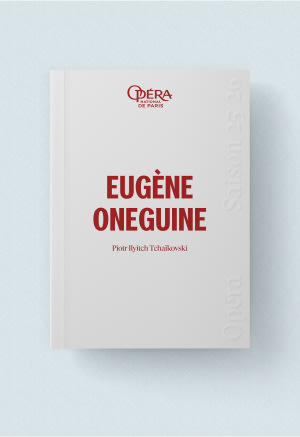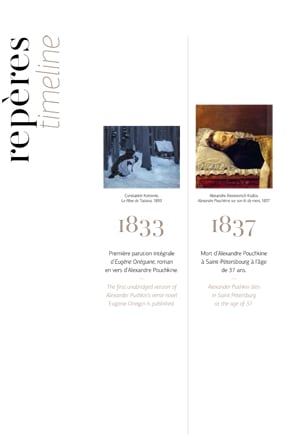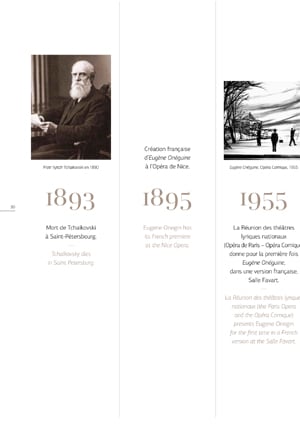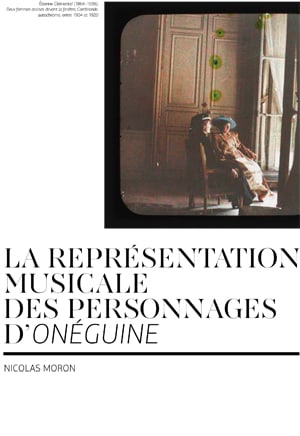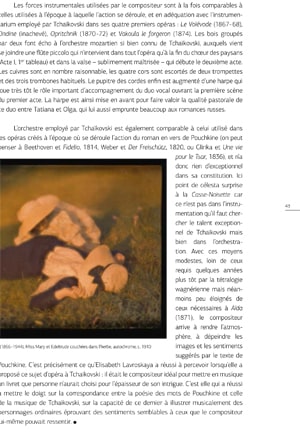Synopsis
Listen to the synopsis
“Eugene Onegin tells a love story that doesn’t work”. This is how Ralph Fiennes sums up the plot of Pyotr Ilyich Tchaikovsky’s opera, inspired by Pushkin’s work. A jaded young dandy, Onegin sets shy Tatiana on fire at first sight. Overcoming her reticence, she writes him a passionate love letter.
Alas, he brutally refuses, giving her a lecture on morality. However, years later, after a duel, he falls in love with the young woman who is now Prince Gremin’s wife. Will she yield to his advances?
Fascinated by Russian culture and attuned to the dramatic intensity of Tchaikovsky’s music, Ralph Fiennes is directing his first opera. If he chooses to use pictorial simplicity to evoke the Russian countryside or a ballroom, it is all the better to emphasise the emotions of the characters, as complex as they are modern.
Duration : 3h15 with 2 intervals
Language : Russian
Surtitle : French / English
-
Opening
-
First part 75 min
-
Intermission 20 min
-
Second part 40 min
-
Intermission 20 min
-
Third part 40 min
-
End
Artists
Opera in three acts and seven scenes (1879)
After Alexander Pushkin
Creative team
Cast
The Paris Opera Orchestra and Chorus
Media
Access and services
Palais Garnier
Place de l'Opéra
75009 Paris
Public transport
Underground Opéra (lignes 3, 7 et 8), Chaussée d’Antin (lignes 7 et 9), Madeleine (lignes 8 et 14), Auber (RER A)
Bus 20, 21, 27, 29, 32, 45, 52, 66, 68, 95, N15, N16
Calculate my route-
Cloakrooms
Free cloakrooms are at your disposal. The comprehensive list of prohibited items is available here.
-
Bars
Reservation of drinks and light refreshments for the intervals is possible online up to 24 hours prior to your visit, or at the bars before each performance.
At the Palais Garnier, buy €10 tickets for seats in the 6th category (very limited visibility, two tickets maximum per person) on the day of the performance at the Box offices.
In both our venues, discounted tickets are sold at the box offices from 30 minutes before the show:
- €35 tickets for under-28s, unemployed people (with documentary proof less than 3 months old) and senior citizens over 65 with non-taxable income (proof of tax exemption for the current year required)
- €70 tickets for senior citizens over 65
Get samples of the operas and ballets at the Paris Opera gift shops: programmes, books, recordings, and also stationery, jewellery, shirts, homeware and honey from Paris Opera.
Palais Garnier
- Every day from 10:30 a.m. to 6 p.m. and until performances end
- Get in from Place de l’Opéra or from within the theatre’s public areas
- For more information: +33 1 53 43 03 97
Online
Palais Garnier
Place de l'Opéra
75009 Paris
Public transport
Underground Opéra (lignes 3, 7 et 8), Chaussée d’Antin (lignes 7 et 9), Madeleine (lignes 8 et 14), Auber (RER A)
Bus 20, 21, 27, 29, 32, 45, 52, 66, 68, 95, N15, N16
Calculate my route-
Cloakrooms
Free cloakrooms are at your disposal. The comprehensive list of prohibited items is available here.
-
Bars
Reservation of drinks and light refreshments for the intervals is possible online up to 24 hours prior to your visit, or at the bars before each performance.
At the Palais Garnier, buy €10 tickets for seats in the 6th category (very limited visibility, two tickets maximum per person) on the day of the performance at the Box offices.
In both our venues, discounted tickets are sold at the box offices from 30 minutes before the show:
- €35 tickets for under-28s, unemployed people (with documentary proof less than 3 months old) and senior citizens over 65 with non-taxable income (proof of tax exemption for the current year required)
- €70 tickets for senior citizens over 65
Get samples of the operas and ballets at the Paris Opera gift shops: programmes, books, recordings, and also stationery, jewellery, shirts, homeware and honey from Paris Opera.
Palais Garnier
- Every day from 10:30 a.m. to 6 p.m. and until performances end
- Get in from Place de l’Opéra or from within the theatre’s public areas
- For more information: +33 1 53 43 03 97
Online
You will also like
Partners
-
-
-
Mécène du rayonnement international de l'Opéra





















